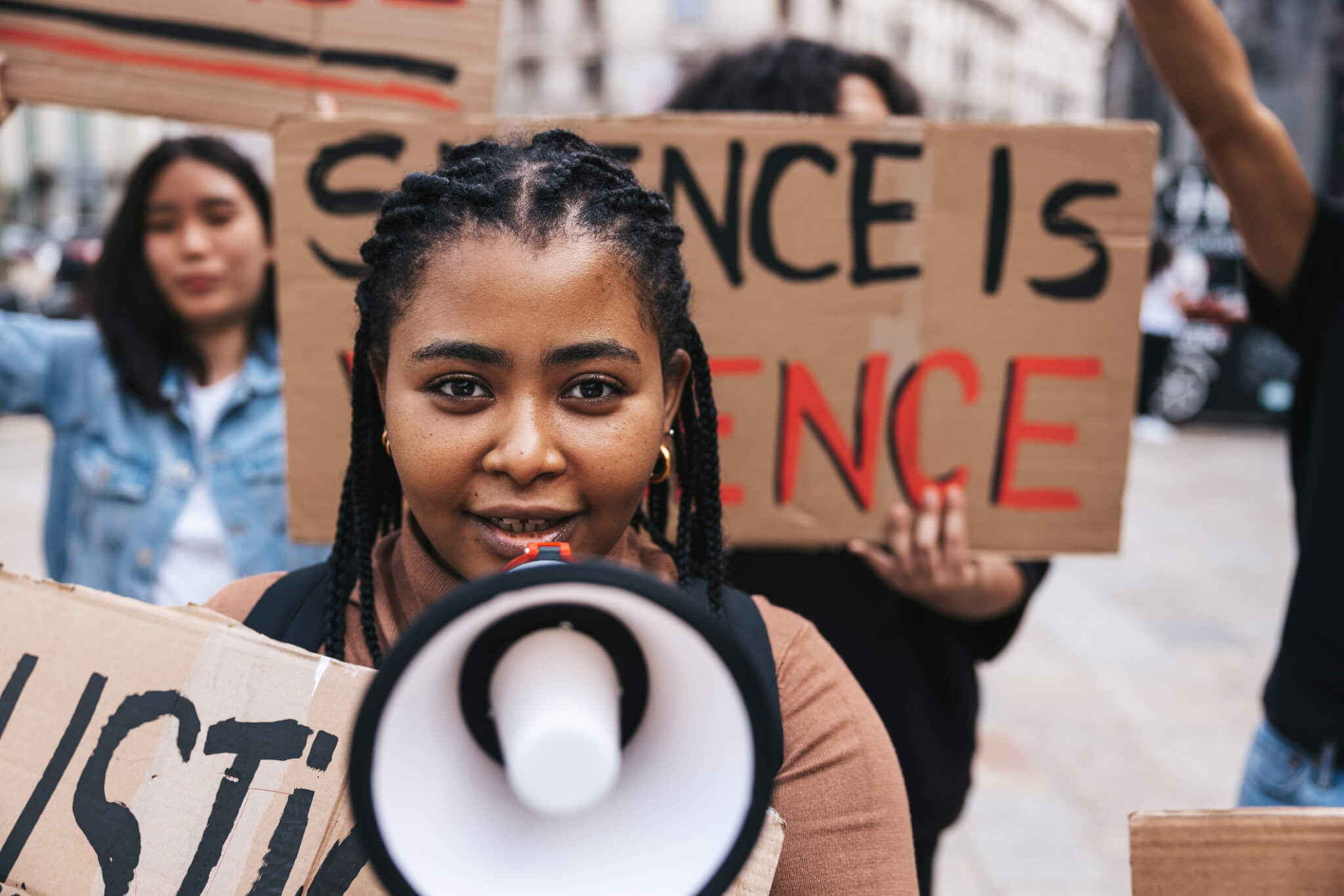Youth Voices: Civic Engagement, Socio-Political Responsibility & Social Media
In March 2021, YouthREX supported a pilot study on youth online civic engagement, led by Dr. Nombuso Dlamini, Associate Professor, Faculty of Education, York University (and member of our academic network), and Dr. Tannaz Zargarian, Postdoctoral Fellow at the Faculty of Education, University of Manitoba.
The study explored the impact of the COVID-19 pandemic and associated lockdowns on youth civic engagement. It helped us understand how young people define civic engagement, how they use social media to engage in social and political issues, and what they see as the most significant barriers to engagement.
We conducted two online focus groups with a total of 18 participants, aged 17-28, who had been active on at least two social media platforms in the past year. Participants first completed a short survey, in which they defined their understanding of civic engagement, and then shared their views on, and experiences with civic engagement, discussed their use of social media, and identified the political and social issues that matter most to them.
Here are five things we learned.
1. Online civic engagement increased during the pandemic.
Not only did young people’s use of social media increase, but their exposure to, and involvement with, social justice issues also increased during this time, thanks to the popularity of movements such as #BlackLivesMatter and Stop Asian Hate. Participants felt that they were more involved in political and social actions during this time, and reported sharing information, engaging in debates, participating in online groups, and following political/activist social media pages.
2. Not all civic engagement is perceived as equal.
Participants defined civic engagement as being an active and engaged member of a community, and emphasized self-awareness, responsibility, and the centrality of social and political issues. Those who saw themselves as responsible political participants defined civic engagement as “social justice online,” and criticized activities that involved the bashing of others, which they attributed to peer pressure. Participants suggested that it is sometimes important to remain silent in a discussion instead of making contributions that might be uninformed or biased, which they saw as irresponsible.
“Social justice becomes a trend and people post on social media without actually really believing in it [the point of the discussion]. They act otherwise in real life.”
3. Social media can be a space for learning about social and political issues.
Faced with restrictions on their mobility, young people spent more time on their devices, and as a result, were exposed to more social justice content on social media. By engaging with this content, participants reported an increased awareness and understanding of social and political issues. Our study suggests that young people are not passive consumers of this information, but rather, that they engage in critical thinking on a daily basis; for example, they were careful to evaluate the trustworthiness of the content (and sources) they encountered online.
4. Young people use social media to connect the personal to the political.
Participants perceived new platforms, such as TikTok, as spaces that allowed young people to engage in political consciousness-raising. Engaging with content about their peers’ experiences with sexism, racism, body image, and mental health allowed them to make connections between individual experiences and systemic issues. At the same time, participants often hesitated to share their own experiences because they felt a deep sense of social responsibility for their own content.
5. Barriers to engagement include content that promotes misogyny and racism.
Encountering content that fostered hate, including racism and misogyny, was identified as the most significant barrier to online engagement. Young women described the sexualization of women’s bodies as damaging to their online experiences, and admitted that they were not sure how to address this issue. Many remained silent because they feared being subject to harassment.
“There is a lot of focus on the perfect fit body and how to be beautiful and sexy. If you are not fit or do not look perfect, people comment with hurtful stuff. I know this is wrong, but it still affects the way I perceive myself, and sometimes I hesitate to participate online. I just do not want to get noticed.”
The findings of this pilot study suggest that social media can be a positive space, in which young people are able to lead, and engage in, critical and political consciousness-raising. We discovered that young people are conscious of how they engage with social and political issues online, and mindful of how they consume and share this content.
However, the study also revealed that positive online experiences were contingent on feeling safe on social media platforms. This suggests that youth workers, for instance, may have a role to play in supporting young people to assess their social media use (including its impact on their mental health) and to identify ways to reduce their exposure to harmful content. They may also want to consider engaging with peers in private, moderated groups (such as those found on Facebook and Discord), in which all members must agree to a set of ground rules (see, for example, the NGM Boys Club). Young people may also benefit from a deeper understanding of their social rights and responsibilities, as well as guidance on how to exercise these rights and responsibilities on social media platforms.
At the same time, it is important to acknowledge the role that social media can play in allowing young people to learn about important issues, make meaningful connections, and develop a sense of social responsibility. In fact, this study suggests that the negative impacts of social media use may be tempered by young people’s curiosity, critical literacy, and self-awareness.

